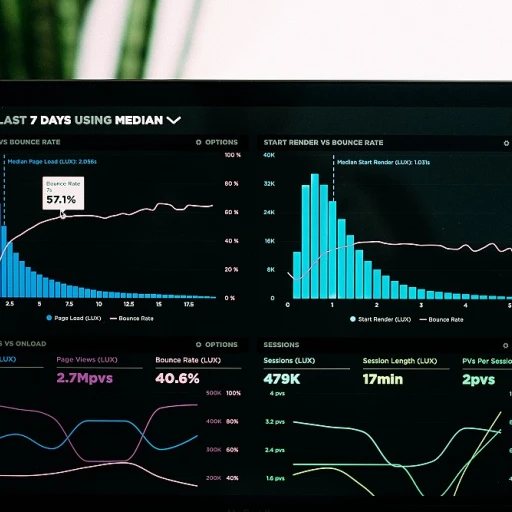
The Basics of the Aidma Framework
Introduction to the AIDMA Framework
The AIDMA framework is a model commonly used in marketing to understand consumer behavior in relation to advertising and products. It stands for Attention, Interest, Desire, Memory, and Action, which are five stages a consumer typically goes through from encountering an advertisement to making a purchase decision. This framework is valuable in SEO as it helps in crafting strategies that effectively guide online consumers through these stages towards conversion.How the Framework Operates
Understanding how consumers transition through each stage of the AIDMA model helps businesses strategically plan their marketing and advertising efforts.- Attention: This is the first stage where the goal is to grab the potential customer's focus. Online platforms and search engines, like Google, play a critical role here. Techniques involving content optimization and eye-catching visuals are essential to capture attention.
- Interest: Once attention is garnered, the challenge lies in sustaining interest. Here, content that is informative and engaging becomes crucial. It's also the stage where an interest in specific features of a brand or product is cultivated.
- Desire: By aligning consumer interest with their needs, the psychological shift from interest to desire occurs. Engaging content and positive reviews can greatly aid in strengthening this desire, enhancing the overall consumer decision-making process.
- Memory and Action: A memorable brand experience and ease of purchase play dominant roles in the final stages, leading to action—a crucial outcome for businesses aiming for conversions.
The Role of SEO in Implementing AIDMA
Search engine optimization is integral in each of these stages. It assists in increasing visibility, facilitating easier access to useful information, and creating an inviting online presence that not only captures but retains consumer focus. Optimizing content to reflect the stages of AIDMA can lead to improved search action results, ensuring advertising and marketing efforts meet their desired objectives. In the realm of online consumer behavior, the AIDMA framework, paired with SEO and AI techniques, supports an efficient, cohesive strategy—one that paves a way for engaging potential customers and guiding them towards taking impactful decisions. For businesses looking to have a positive impact on their marketing strategy, an understanding of the AIDMA model is equally as important as implementing AI-enhanced SEO techniques. For further insights on strategic marketing enhancements, you might want to take a look at how an innovative marketing strategist can influence event planning strategies, as discussed in this related article on marketing strategist involvement.Integrating AI with the Aidma Framework
Blending AI Tools with the Aidma Marketing Framework
The integration of artificial intelligence (AI) with the Aidma framework in the world of search engine optimization (SEO) has sparked a significant transformation in how marketers approach consumer behavior. By aligning AI-driven insights with the traditional elements of the Aidma model, which focuses on Attention, Interest, Desire, Memory, and Action, brands can better understand and engage their online consumers.
AI’s capability to analyze vast amounts of data enables a more nuanced understanding of consumer attention and interest. Through this process, marketers can identify patterns and anticipate consumer decision making with a level of precision that was previously unattainable. With this model, businesses can effectively tailor their content to match the interests and behaviors of their target audience, thereby increasing the likelihood of successful online engagement.
Moreover, AI tools gather insights from various data sources, such as social media interactions and search queries, which are instrumental in creating relevant and compelling content. Platforms like Google Scholar and international marketing journals provide a wealth of information that AI can process to enhance a brand's SEO strategies.
In the stage of desire and memory, AI contributes by predicting which products or services are most likely to intrigue consumers. Through the analysis of advertising patterns and consumer reviews, AI can suggest strategies that resonate more with the intended audience, leading to a more effective conversion of interest into desire.
Furthermore, AI facilitates the tracking of consumer actions post-interaction, enabling marketers to refine their strategies continually. By monitoring the hierarchy of effects in consumers' journey, AI ensures that the marketing efforts are perpetually optimized for success.
The integration of AI into the Aidma framework, particularly in SEO strategies, is not without challenges. However, as AI technologies evolve, they bring forth opportunities for brands to enhance their marketing tactics effectively, thereby achieving stronger consumer engagement and driving a positive impact on brand visibility. For further insights into how AI is shaping modern SEO strategies, especially in emerging fields like gaming influencers, take a look at this detailed analysis on the rise of gaming influencers.
AI-Driven Attention and Interest
Transforming User Engagement with AI Applications
In the digital marketing landscape, capturing the attention and interest of a customer is pivotal to driving successful outcomes. By integrating AI capabilities, marketers can deepen their understanding of consumer behavior and enhance brand engagement right from the early stages of the aidma model.
The contemporary consumer embarks on their journey by engaging with various touchpoints, such as social media, online content, and reviews on platforms like Google Scholar or product forums. AI-driven systems can meticulously analyze consumer decision-making processes by utilizing data from these interactions, thereby predicting which content or advertisement will most likely grab attention and pique interest. This automation of the awareness stage allows brands to strategically allocate resources to high-impact channels, refining the aidma model for better effectiveness.
One tangible application of AI in sparking interest lies in the realm of dynamic content customization. By leveraging AI algorithms, companies can now craft hyper-personalized experiences tailored to individual consumers based on their past behaviors and preferences. This not only boosts engagement but solidifies a brand's reputation as a frontrunner in consumer-centric marketing strategies.
The significance of AI in streamlining the interest-search dynamic is underscored by its capacity to practice predictive action in search results. By examining online consumer patterns, AI systems can prioritize content that speaks directly to the audience's needs and preferences. As a result, Google and other search engines are enabled to offer a refined interest search experience.
With advancements in AI, the overall impact sharing on the consumer journey continues to evolve, promising to further tailor the attention-interest phase towards more concise and actionable insights. For a deeper dive into AI's role in modern SEO, consider exploring how AI-driven strategies are shaping SEOs across industries.
Desire and Memory in AI-Enhanced SEO
Fostering Desire and Enhancing Memory Through AI in SEO Strategies
Incorporating AI within SEO strategies significantly influences how consumer desire and memory are shaped regarding a product or service. The transition from mere Interest to heated Desire relies heavily on personalized marketing strategies driven by AI. AI models analyze vast amounts of consumer data, including past behaviors and preferences, to tailor content that genuinely resonates with the targeted audience. For instance, when consumers search online, AI evaluates previous interactions and online activities to predict and prioritize the kind of advertising content that will most effectively ignite desire. Through this proactive approach, AI can identify key touchpoints in the consumer decision-making process where it can intervene. This blend of AI and the Aidma model creates what could be termed a hierarchy of effects, promoting brand loyalty and consumer retention. Moreover, the use of AI facilitates the crafting of rich, memorable experiences that consumers are likely to remember and share through social media channels. By tapping into consumer behavior and automating personalized content delivery, brands can leave a lasting impact and encourage positive sharing and reviews online. Publications such as the International Journal of Marketing have documented the remarkable breadth of AI's impact on consumer behavior, revealing how strategic attention and interest search methodologies enhance brand recall and affinity. Ultimately, AI technologies play a pivotal role in moving consumers from the stage of Interest to Desire and retention, by offering them personalized experiences that resonate on a deep, cognitive level. In leveraging the power of AI, brands can not only capture attention but sustain it throughout the entire consumer journey, laying strong foundations for loyalty and advocacy in the digital age.Action and AI in SEO
Driving Sales Through AI-Enhanced Actions
In the realm of AI-enhanced SEO, focusing on various stages of the AIDMA model offers a comprehensive understanding of how to effectively influence consumer behavior towards taking action. As businesses navigate through the model, the importance of converting website visits into meaningful interactions becomes increasingly apparent. Understanding this can lead to notable transformations in marketing tactics. Through AI-driven platforms, brands can implement precision-targeted actions catered to individual consumer needs. Technologies such as machine learning can analyze patterns, enabling marketers to tailor the right product or service offerings.- Consumer Behavior and Decision Making: AI technologies facilitate deeper insights into consumer behavior during their journey. By understanding the decision-making process, marketers can create personalized experiences that make it easier for consumers to act. This includes leveraging search engine optimization to focus on products and services that align with consumer interests and desires.
- Utilizing Attention and Interest: As covered previously, capturing the initial attention and cultivating interest are crucial. Once achieved, AI tools can capitalize on this by creating a seamless path to convert interest into action. This can include personalized advertising and content strategies tailored to consumer profiles.
- Seamless Online Experience: Optimizing the online consumer journey involves implementing AI strategies to enhance the overall experience. This includes reducing friction points that may hinder action, employing chatbots for real-time assistance, and using predictive analytics to suggest relevant products or services.
- Impact of Social Media: The role of social media in consumer action cannot be understated. AI can manage and analyze social interactions to identify and capitalize on trends that lead to higher engagement and conversion rates.













